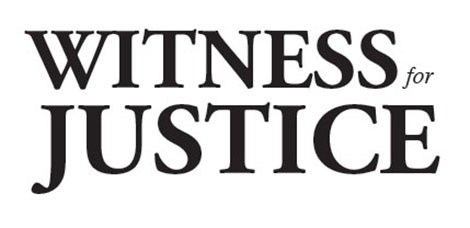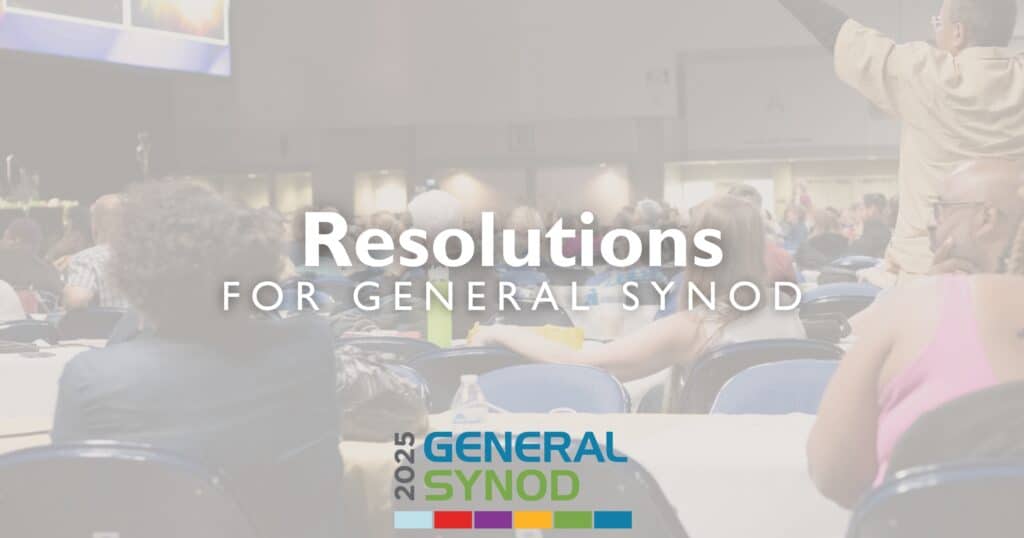Commentary: Deep into the Eye of the Hurricane in the Caribbean
 In the Caribbean people look up and see God in the winds. They sense God’s overwhelming presence in the nature that shelters them, and in its contours and limitations, becomes a dominant force that creates, destroys, and transforms. As human beings, we confess our limitations by understanding God´s mysterious work and recognizing that God’s wonders are incomprehensible to our humanly limited gaze. It is within this powerful dialectic of destruction/creation/transformation that the notion of mission in the Caribbean can be understood and our process for accompanying our partners and their countries into a path of justice and fullness of life can be undertaken.
In the Caribbean people look up and see God in the winds. They sense God’s overwhelming presence in the nature that shelters them, and in its contours and limitations, becomes a dominant force that creates, destroys, and transforms. As human beings, we confess our limitations by understanding God´s mysterious work and recognizing that God’s wonders are incomprehensible to our humanly limited gaze. It is within this powerful dialectic of destruction/creation/transformation that the notion of mission in the Caribbean can be understood and our process for accompanying our partners and their countries into a path of justice and fullness of life can be undertaken.
On September 6, 2017, Hurricane Irma, became one of the most powerful hurricanes ever recorded in the Atlantic. Irma damaged crops and houses in the Dominican Republic. Haiti, where they are still recovering from the devastation caused by the 2010 earthquake and Hurricane Matthew last year, was flooded once again. Two weeks later, Hurricane María slammed into Puerto Rico — the first Category 4 storm to directly strike the island since 1932. Within hours Maria had fully engulfed the 100-mile-long island as winds, shattered palm trees, peeled off rooftops, and cut electric power to nearly the entire island. More than three million Puerto Ricans remain almost entirely without electricity, not because their power plants are down, but because roughly 80 percent of transmission lines are. The hurricane has left the island wholly crippled as residents struggle to pick up the pieces.
Besides the natural effects of the hurricanes in the Caribbean region, it is crucial to understand the other forces that have hammered the islands. They are suffering the effects of globalization, privatization of public services, free trade, the dissolution of the social state, and the full dominion of multinationals and private investments over the common interest, which has diminished the abilities these countries to withstand natural disasters. For example, in Puerto Rico, the Electric Power Authority has been under fire for “inefficiencies” in recent years. As a result hundreds of employees were dismissed, mostly electric line workers. Now that the system is down because of the hurricane, the restoration of the service will take twice as much time as preventative maintenance would have.
On top of that, the islands bear the additional burden of laws and restrictions imposed by the U.S. Congress, which create an unjust burden on the economy of the Caribbean. That is why we, as people of faith, need to advocate for the elimination of the economic blockade against Cuba and the Jones Act in Puerto Rico, among other measures, to allow the recuperation of both islands and the rest of the Great Caribbean.
We must let the winds bring down our prejudices, our false ideologies, and illusory assurances. The lesson from the hurricane is to understand that only God has Words of eternal life before our sins, myopia, and vulnerabilities. The witness of the people from the Great Caribbean, battered by forces both earthly and human, must bring us to a space of solidarity in which demolished walls are brought down and we are able to recognize those neighbors who have been invisible to our sense of solidarity and care.
Angel L. Rivera-Agosto is Area Executive for Latin America and the Caribbean for Global Ministries of the United Church of Christ and Christian Church (Disciples of Christ).
View this and other columns on the UCC’s Witness for Justice page.
Donate to support Witness for Justice through the Neighbors in Need offering.
Click here to download the bulletin insert.
Related News
Persona non Grata
The first time I heard the term persona non grata I was a child living in Jamaica, where I was...
Read More‘Natural Spirituali-teas’ vlog from UCC General Minister & President explores spirituality
It's time to spill the tea--the Rev. Karen Georgia Thompson, United Church of Christ General...
Read MoreResolutions for General Synod 35 span global contexts, holistic health, Conference change
The final proposed resolutions for General Synod 35 are now available for review. Eight...
Read More


